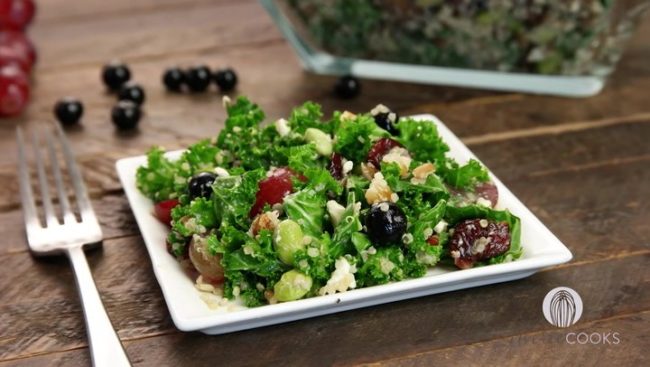Exploring The Link Between Serotonin And Extra Virgin Olive Oil
Updated November 15th 2023

Summary:
- Extra Virgin Olive Oil Can Help you get a better night’s sleep
- The Antioxidants in the best extra virgin olive oil can regulate your serotonin levels and increase sleep quality
- Other foods, including leafy green vegetables, cherries and avocados can help your sleep patterns
- Extra Virgin Olive Oil is also linked to reducing anxiety
Contents:
- Extra Virgin Olive Oil Contains Antioxidants That Regulate Serotonin And Improve Sleep
- Sleep Enhancing Salad With Extra Virgin Olive Oil
- Can Extra Virgin Olive Oil Reduce Anxiety?
- Ways of Incorporating Olive Oil in Your Anxiety-Free Kitchen
Extra Virgin Olive Oil Contains Antioxidants That Regulate Serotonin And Improve Sleep
Are you having trouble sleeping at night? If so, you may want to take a closer look at extra virgin olive oil and its powerful effects on improving sleep.
Extra virgin olive oil is packed with antioxidants that can help regulate your serotonin levels which in turn increases your overall quality of sleep. Not only does extra virgin olive oil have the potential to improve sleep but it also has countless other benefits throughout your body such as aiding digestion and reducing inflammation.
In this post, we’ll share a simple recipe featuring extra virgin olive oil that will not only help promote better restful nights but also provide your body with numerous nutrients that strengthen health and wellbeing. We will also look more closely at the link between whether olive oil can modulate the serotonin, dopamine, norepinephrine, epinephrine, and/or histamine neurotransmitter systems in the brain.
Sleep Enhancing Salad With Extra Virgin Olive Oil
According to a recent article in Guardian Life, incorporating a balanced diet rich in ingredients known for their sleep-promoting properties can be a beneficial adjunct to treatment.
This recipe aims to provide a combination of foods that can help in the treatment of insomnia, explaining their effectiveness in promoting better sleep.

Ingredients:
- Mixed leafy greens (spinach, lettuce, kale)
- Walnuts or almonds
- Tart cherries or cherry juice
- Quinoa
- Avocado
- Chickpeas or lentils
- Morocco Gold Extra Virgin Olive oil
- Lemon juice
- Dried herbs (such as basil or oregano)
- Salt and pepper to taste
Guardian Life explains why each of these foods are the best choice to increase restful sleep.
1. Mixed Leafy Greens
Dark leafy greens like spinach and kale are rich in magnesium, a mineral known for its calming effect on the nervous system. They also contain folate, which helps regulate sleep patterns. Including these nutrient-packed greens in your diet provides a solid foundation for insomnia treatment.
2. Walnuts or Almonds
These nuts are a good source of tryptophan, an amino acid that helps increase the production of serotonin—a neurotransmitter that promotes relaxation and sleep. Additionally, walnuts are high in melatonin, a hormone that regulates the sleep-wake cycle.
3. Tart Cherries or Cherry Juice
Tart cherries or cherry juice are naturally rich in melatonin. Consuming them can significantly improve sleep duration and quality, reducing the time taken to fall asleep. Incorporating tart cherries or cherry juice into your diet can potentially aid in combating insomnia.
4. Quinoa
Quinoa is a complex carbohydrate that promotes the production of serotonin, easing stress and facilitating better sleep. It also contains magnesium and tryptophan, further enhancing its sleep-promoting properties.
5. Avocado
Avocados are a good source of healthy fats, fibre, and B vitamins, which contribute to a better sleep cycle. They also contain tryptophan and magnesium, making them a valuable addition to a sleep-enhancing diet.
6. Chickpeas or Lentils
Legumes like chickpeas and lentils are high in protein and fibre. They provide a steady release of energy throughout the night, minimizing blood sugar fluctuations that can disrupt sleep. They also contain amino acids that support serotonin production.
7. Extra Virgin Olive Oil
Extra Virgin Olive oil, a staple of the Mediterranean diet, is rich in monounsaturated fatty acids. These healthy fats promote the production of serotonin, contributing to a relaxed state conducive to restful sleep.
8. Lemon Juice and Dried Herbs
A simple dressing of lemon juice and dried herbs adds flavour to the salad while providing compounds known for their calming and anti-inflammatory properties. This combination complements the sleep-enhancing ingredients and contributes to overall well-being.
The ingredients in this recipe offer a combination of vitamins, minerals, healthy fats, and other compounds that promote relaxation, regulate sleep patterns, and support overall sleep quality.
Combining these ingredients can create a delicious, nutritious, and sleep-friendly meal that may contribute to a better night’s rest.
However, it is essential to consult with a healthcare professional for personalised advice and comprehensive treatment of insomnia.
Can Extra Virgin Olive Oil Reduce Anxiety?
As well as helping to promote a good night’s sleep, the components of a quality extra virgin olive oil could help reduce anxiety.
According to a recent summary in TheEarthDiet.com, the complex nutritional composition of extra virgin olive oil results in many potential health benefits, including reducing anxiety.
Looking closer at the science, The Earth Diet says:
Rich in MUFAs, it is composed mainly of mixed triglyceride esters of oleic acid, palmitic acid, and other fatty acids; traces of squalene and sterols; and other antioxidants—tyrosol, hydroxytyrosol, oleocanthal, oleuropein, vitamin E, and carotenoids.
Oleuropein prevents the oxidation of LDL (aka “bad cholesterol”) particles.1 Everybody knows we are supposed to keep our bad cholesterol in check and raise our good cholesterol (HDL) if we can. But where this LDL-limiting trait becomes relevant to anxiety is in the ability of oleuropein (OLE) to reduce anxiety-like responses by activating neurons that regulate the neurotransmitter serotonin and some neuropeptides. Neuropeptides help the neurons communicate with each other.
They are signalling molecules that influence the activity of the brain and the body in specific ways. In one study, daily OLE administration was demonstrated to significantly reduce anxiety. Among other things it did, OLE blocked a stress-induced decrease in serotonin. This finding suggests that OLE has anxiolytic-like effects that could be helpful to people with PTSD and anxiety.2
Researchers have also looked into whether olive oil can modulate the serotonin, dopamine, norepinephrine, epinephrine, and/or histamine neurotransmitter systems in the brain. Neurochemical results show that repeated administration of olive oil decreases levels of (5-hydroxytryptamine (5-HT), 5-hydroxyindoleacetic acid (5-HIAA), and L-dopa and increases homovalinic acid (HVA).
These findings suggest that olive oil has neuroprotective effects and reduces certain metabolically linked behavioral deficits. The researchers concluded that olive oil “could be used as a therapeutic substance for the treatment of depression and anxiety.”3
Olive oil is rich in both omega-3 and omega-6 fatty acids and helps to balance them in the body. It supports the central nervous system by aiding proper nerve function and increasing serotonin levels. This gives it therapeutic value for treating major depression.4
Olive oil also could play an adaptive role in stressful times as it has been shown to reduce even the perception of stress.5
Also, oleuropein derivatives found in olive oil, especially hydroxytyrosol, have been shown to have an antioxidant capacity higher than that of other known antioxidants, including vitamins E and C.6
Ways of Incorporating Olive Oil in Your Anxiety-Free Kitchen
The Earth Diet offers some great tips on how to incorporate a quality extra virgin olive oil into your kitchen to reduce anxiety. These are;
- Olive oil has a medium smoke point, so use it for cooking foods at medium heat like stir-fried vegetables.
- Use olive oil as a base for salad dressing. You can’t go wrong by mixing olive oil and vinegar, like apple cider vinegar, for a delicious dressing, or olive oil and lemon.
- If you don’t like the taste of olive oil, consider chopping up the leaves and tossing them into a salad. Or making stuffed grape leaves like they do in Mediterranean countries. (The leaves of the olive tree have long been used in folk healing in France, Greece, Italy, Morocco, Spain, Tunisia, and Turkey.7 Olive leaves have been used in the human diet in the form of extracts, herbal teas, and powders for centuries.)
